In preparation for advanced practice nursing roles, students are expected to demonstrate the ability to meet the demands of a professional nursing career. Certain functional abilities are essential for the delivery of safe, effective nursing care.
An applicant to the Doctor of Nursing Practice program must meet the following technical standards and maintain satisfactory demonstration of these standards for progression throughout the program. Students unable to meet these technical standards will not be able to complete the program. Students shall notify faculty of any change in their ability to meet technical standards. The technical standards include but are not necessarily limited to the following:
General Ability
The student is expected to possess functional use of the senses of vision, touch, hearing, and smell so that data received by the senses is integrated, analyzed and synthesized in a consistent and accurate manner. The student is expected to possess the ability to perceive pain, pressure, temperature, position, vibration, and movement in order to effectively evaluate patients. A student must be able to respond promptly to urgent situations.
Observational Ability
The student must have the ability to make accurate visual observations and interpret them in the context of clinical/laboratory activities and patient care experiences. The student must be able to document these observations accurately.
Communication Ability
The student must communicate effectively verbally and non-verbally to obtain information and explain that information to others. Each student must have the ability to read, write, comprehend and speak the English language to facilitate communication with patients, family members, and other members of the healthcare team. The student must be able to document and maintain accurate records, present information in a professional manner and provide patient instruction to effectively care for patients and their families.
Motor Ability
The student must be able to perform gross and fine motor movements with sufficient coordination needed to provide complete physical assessments and provide safe effective care for patients. The student is expected to have psychomotor skills necessary to perform or assist with procedures, treatments, administration of medications, and emergency interventions including CPR if necessary. The student must have sufficient levels of neuromuscular control and eye-to-hand coordination as well as possess the physical and mental stamina to meet the demands associated with extended periods of sitting, standing, moving, and physical exertion required for safe patient care. Students must be able to bend, squat, reach, kneel or balance. Clinical settings may require that students have the ability to carry and lift loads from the floor, from 12 inches from the floor, to shoulder height and overhead. The student must be able to occasionally lift 50 pounds, frequently lift 25 pounds, and constantly lift 10 pounds. The student is expected to be able to maintain consciousness and equilibrium and have the physical strength and stamina to perform satisfactorily in clinical settings.
Intellectual -Conceptual Ability
The student must have the ability to develop problem-solving skills essential to professional nursing practice. Problem solving skills include the ability to measure, calculate reason, analyze, and synthesize objective and subjective data, and to make decisions, in a timely manner that reflect thoughtful deliberation and sound clinical judgment. The student must demonstrate application of these skills and possess the ability to incorporate new information from peers, instructors, and the nursing and healthcare literature to formulate sound judgment to establish care plans and priorities in patient care activities.
Behavioral and Social Attributes
The student is expected to have the emotional stability required to exercise sound judgment, and complete assessment and intervention activities. Compassion, integrity, motivation, and concern for others are personal attributes required of those in the nursing program. The student must fully utilize intellectual capacities that facilitate prompt completion of all responsibilities in the classroom and clinical settings; the development of mature, sensitive, and effective relationships with patients and other members of the healthcare team. The ability to establish rapport and maintain interpersonal relationships with individuals, families, and groups from a variety of social, emotional, cultural and intellectual backgrounds is critical for practice as a nurse. Each student must be able to adapt to changing environments; display flexibility; accept and integrate constructive criticism given in the classroom and clinical settings; and effectively collaborate in the clinical setting with other members of the healthcare team.
Ability to Manage Stressful Situations
The student must be able to adapt to and function effectively in relation to stressful situations encountered in both the classroom and clinical settings, including emergency situations. Students will encounter multiple stressors while in the nursing program. These stressors may be (but are not limited to) personal, patient care/family, faculty/peer, and or program related.
Background Check/Drug Screening
Clinical facilities require that Nebraska Methodist College perform drug testing and background checks on all students before they are allowed to participate in clinical experiences. Therefore, students will be required to have a background check performed and submit to drug screening before being allowed into clinical practice.



